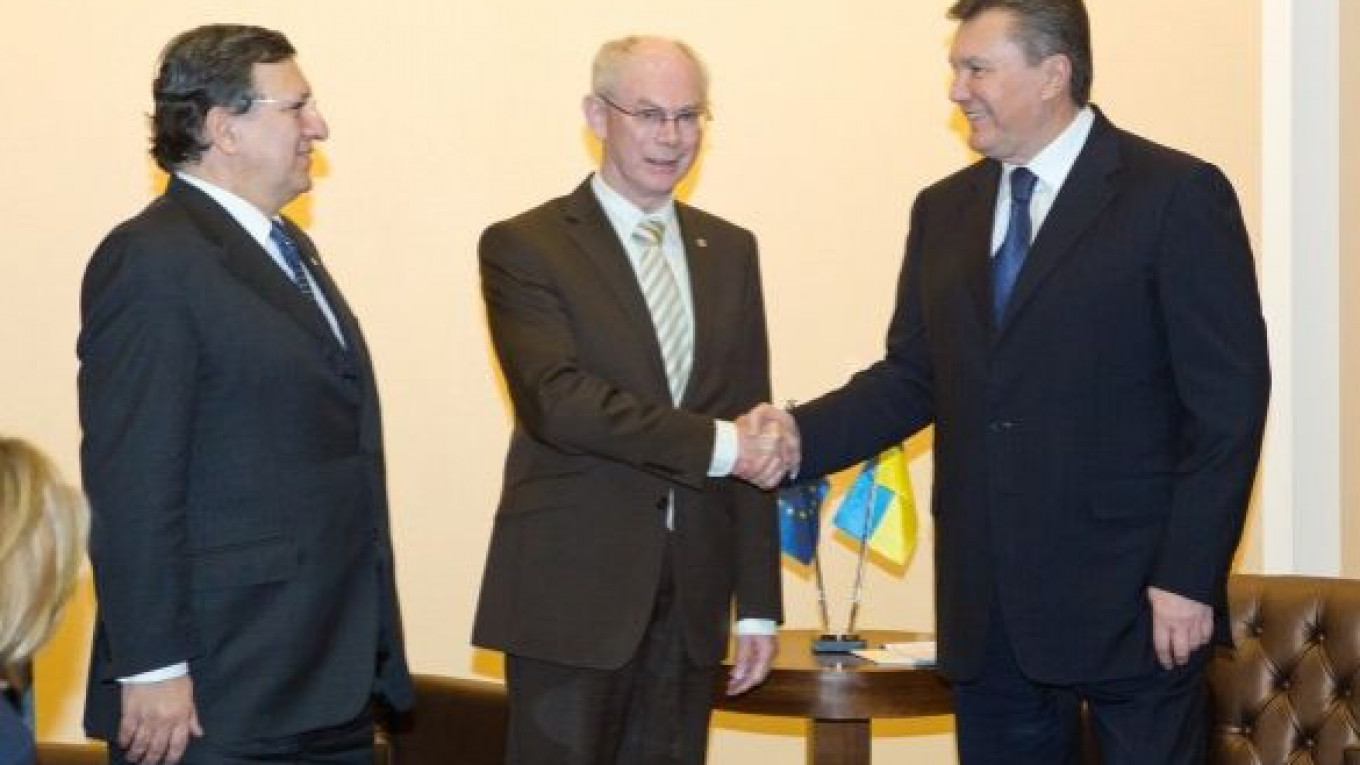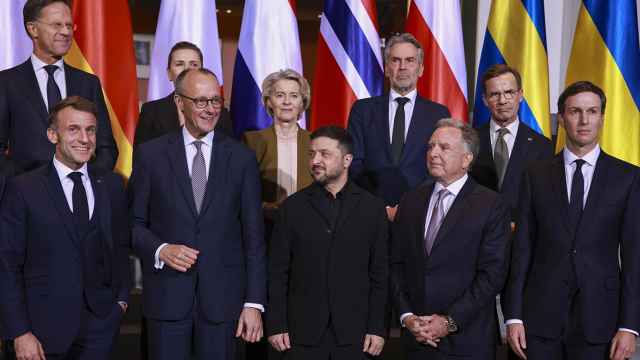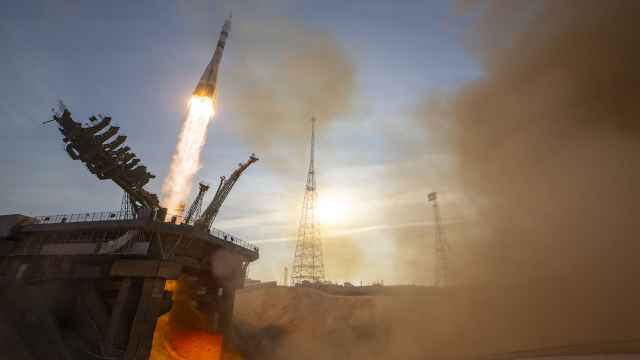European Union leaders were unable to convince Ukrainian President Viktor Yanukovych to sign a trade deal with the bloc on day one of the Eastern Partnership summit in Vilnius, Lithuania.
EU Council President Herman Van Rompuy and European Commission President Jose Manuel Barroso had planned to meet Yanukovych before the start of the summit on Thursday in hope of persuading him to sign an association agreement, but attempts to pull Ukraine closer to the EU appear to have fallen short.
"Unfortunately, the agreement will not be signed," Lithuania's Foreign Minister Linas Linkevicius said, Interfax reported.
The arguments in favor of signing the EU trade deal "had not reached the ears and the mind" of Yanukovych during the summit's official dinner on Thursday, Lithuania's President Dalia Grybauskaite told Agence France-Presse.
Swedish Foreign Minister Carl Bildt wrote on his Twitter account that Ukrainian Foreign Minister Leonid Kozhara had admitted during Thursday's talks that Kiev had been forced to give in to "Russia's harsh economic pressure."
Earlier, Ukrainian Prime Minister Nikolai Azarov said that Ukraine had heeded Moscow's advice when it decided to back away from a deal.
Ukraine may be offered another chance to sign a partnership agreement with the EU at the next summit in spring 2014. Unidentified diplomats say the sides may sign the documents around the beginning of March.
Ukraine had looked set to sign the long-planned cooperation agreement until last week, when Yanukovych backtracked under pressure from Russia. Thousands of Ukrainians have taken to the nation's streets since then in a seemingly futile attempt to force the deal through over the course of the summit.
A Message from The Moscow Times:
Dear readers,
We are facing unprecedented challenges. Russia's Prosecutor General's Office has designated The Moscow Times as an "undesirable" organization, criminalizing our work and putting our staff at risk of prosecution. This follows our earlier unjust labeling as a "foreign agent."
These actions are direct attempts to silence independent journalism in Russia. The authorities claim our work "discredits the decisions of the Russian leadership." We see things differently: we strive to provide accurate, unbiased reporting on Russia.
We, the journalists of The Moscow Times, refuse to be silenced. But to continue our work, we need your help.
Your support, no matter how small, makes a world of difference. If you can, please support us monthly starting from just $2. It's quick to set up, and every contribution makes a significant impact.
By supporting The Moscow Times, you're defending open, independent journalism in the face of repression. Thank you for standing with us.
Remind me later.






